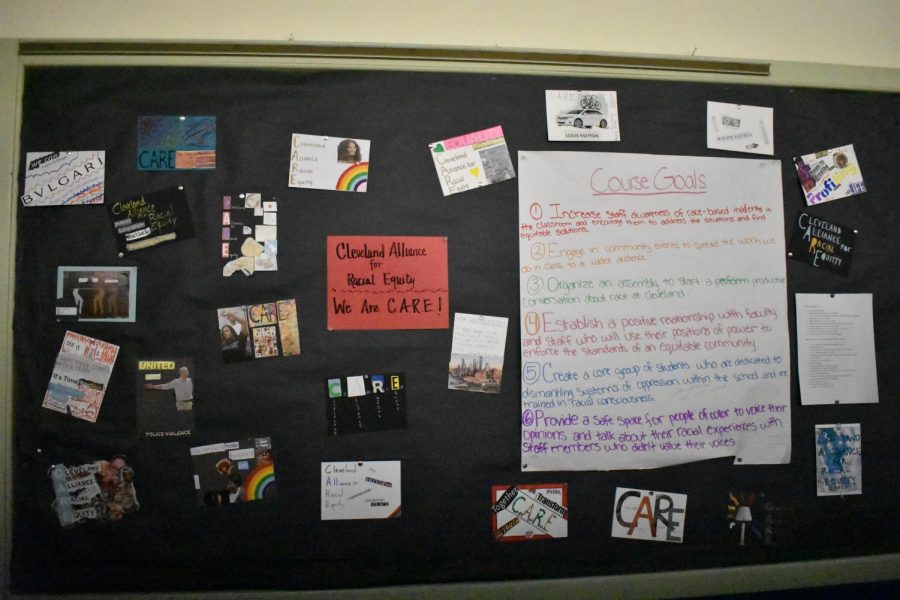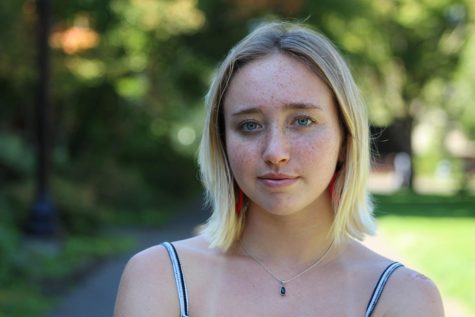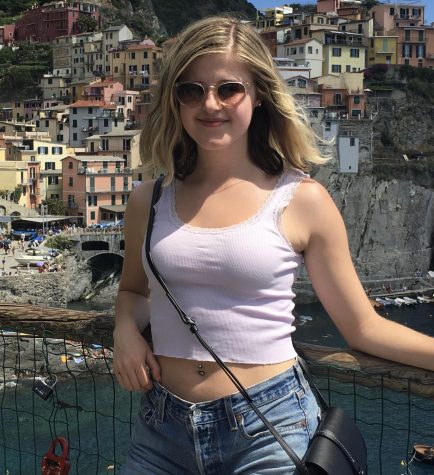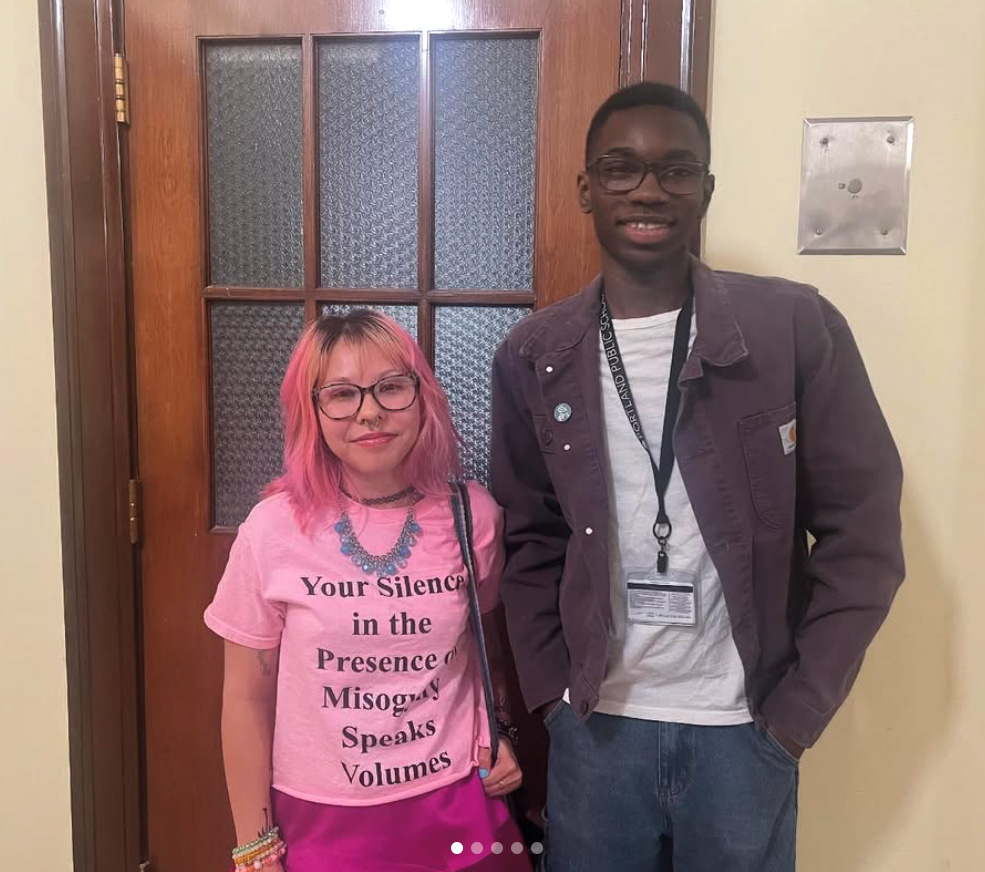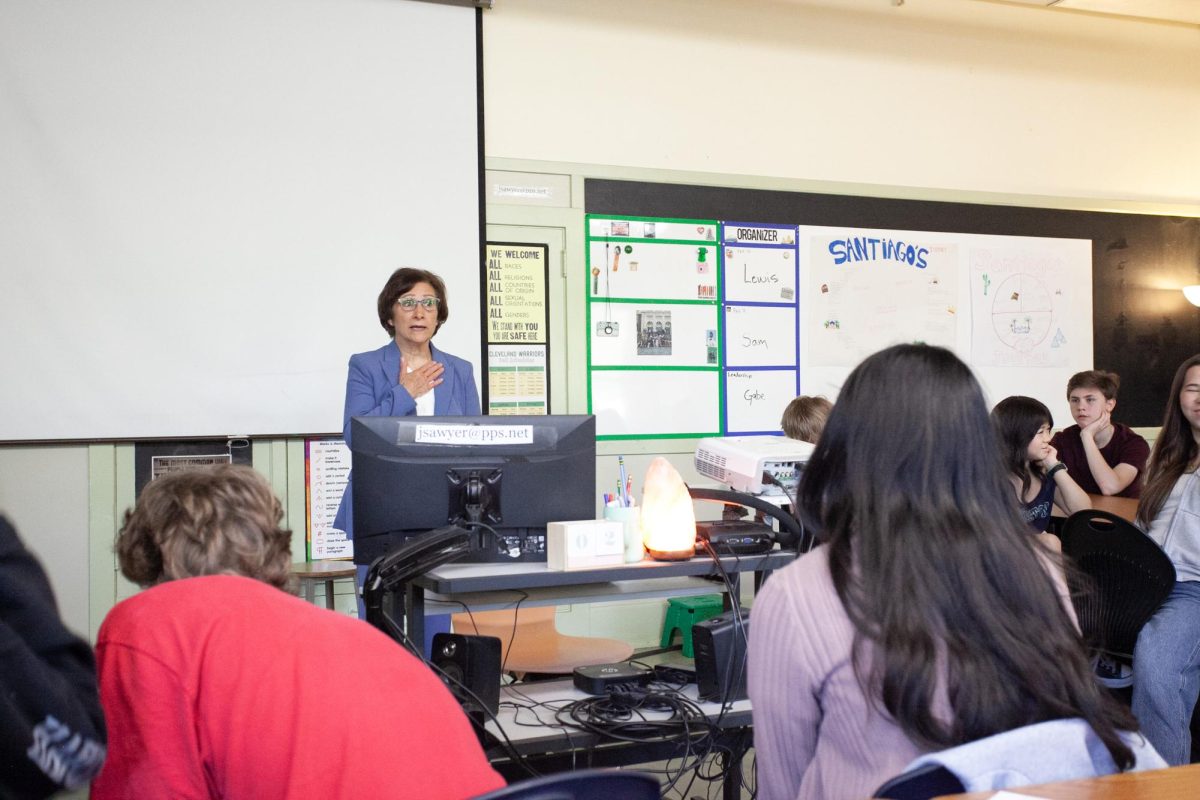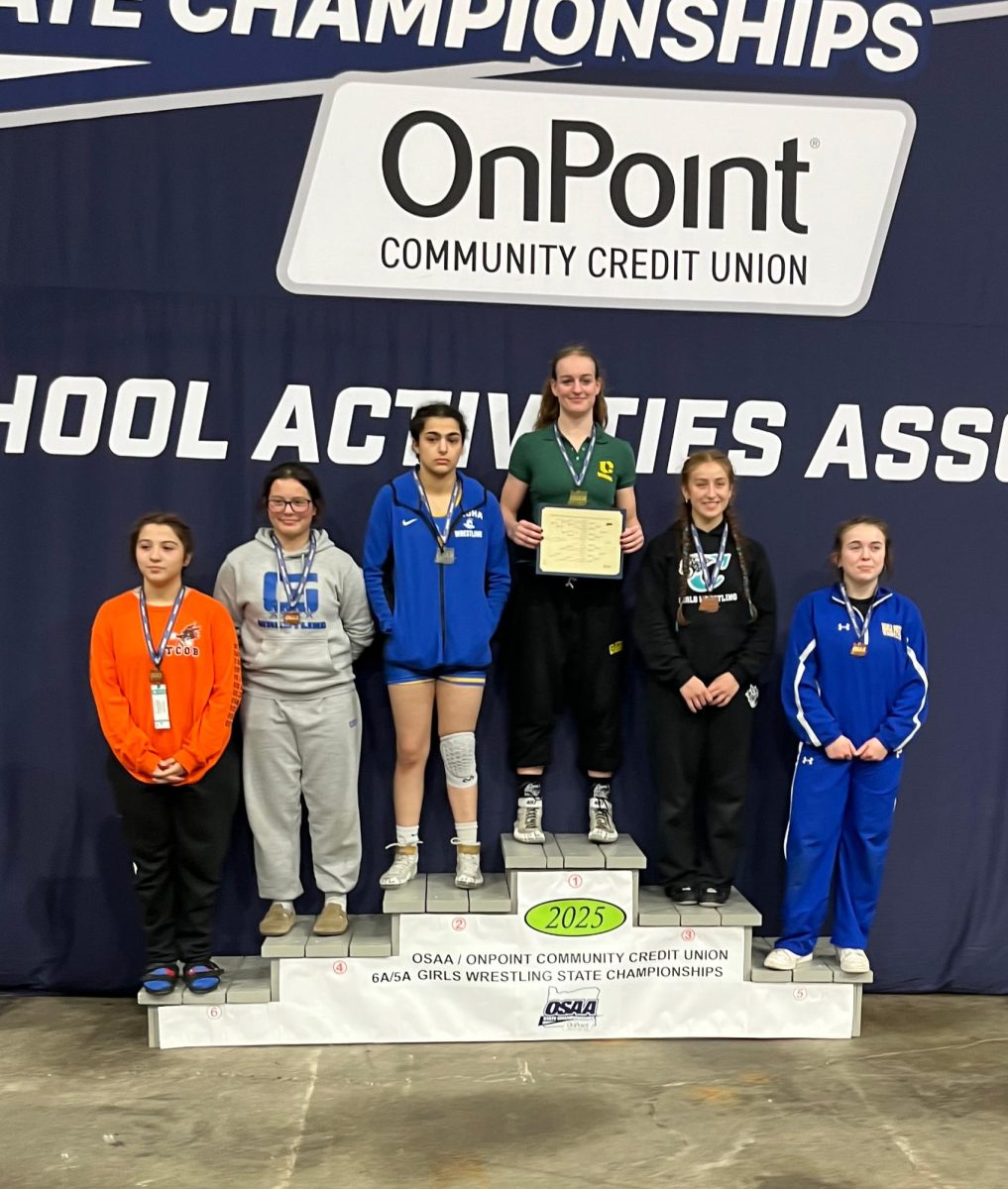CHS CARE Club Transforms into a Class
Clarion photo Camilia Saulino
CARE Class Board
October 31, 2017
The Cleveland Alliance for Racial Equity (CARE) Leadership has taken a step forward in their role at our school by progressing from a club to a class that focuses on issues of racial inequity at Cleveland.
Originally founded as a club, meeting at lunch and sometimes extending discussions to after school, CARE took time to sit down and address issues of racial inequity and how students at Cleveland are impacted. However, the need for more time was crucial, and the formation of a class, students believe, made their efforts more consistent and allowed more issues to be considered and discussed.
Additionally, students thought the formality of a classroom would help solidify their presence in the school. “A classroom definitely made it a lot more professional…teachers would take us more seriously and PPS in general would take us more seriously,” sophomore Paris Davis said.
“We’ve been talking a lot about structural racism, institutional racism, and internalized racism,” said Lynne Allers, who was the club’s advisor and now the teacher of the class. “The focus is talking about race and the effects of it in school equity.”
In its first year as a class, CARE Leadership is developing curriculum to find different ways to engage in conversations about race, as those discussions can be complicated. “When you approach different issues of race, you need to keep in mind that everyone suffers oppression in different ways,” senior Glen Skahill explained.
Another aspect of this class is the autonomy students have to create the structure of the class from their experiences. For example, students have been able to devise their own syllabus and curriculum. As they develop this class, an overarching goal is to create a safe community where students can share their personal experiences with race and discrimination. “We can all come to the circle and talk about whatever we want,” said senior Alayna Neher.
Additionally, CARE Leadership is expected to be part of school-based equity and climate meetings with staff and administrators.
“We haven’t been asked to attend [meetings] yet, so we’re still trying to figure out how the administration will put us into place,” Allers explained. Despite this, they continue to move forward with equity and climate issues such as hallway and classroom policies.
It is no secret that Cleveland is a predominantly white school. According to the Oregonian, Cleveland’s student body is 71 percent white. That makes the formation and presence of CARE Leadership even more important because it provides the space for students of color and white allies to talk about issues not acknowledged in other classes. This leadership class is unique in PPS; few high schools have included a course option in racial equity.
Many members of the Cleveland community recognize the value of CARE Leadership. One of Cleveland’s Advocates for Student Success, Charles Hunter, expressed his outlook on the new class. He believes that CARE Leadership “can be a catalyst for a really positive change,” and what the class accomplishes “could be the thing that really brings Cleveland together.”
Cleveland Principal Ayesha Freeman also expressed how a class like CARE Leadership can be applicable to high school students. “I think there’s a need to really empower our high school age students to have the skills and the ability to have conversations about really controversial topics that are equity related,” Freeman explained. “The best way that we can teach our students how to do that is through offering a course where they learn those kinds of abilities, because we’re not born having the skills and ability to engage in civil discourse or to have conversation about controversial topics.”
Providing students with an opportunity to dig deep into such controversial topics can give students perspective and knowledge to engage in important discussions around racial equity.
Students in CARE Leadership are aware that this process is difficult and that issues regarding school equity will not be resolved overnight. “We also think [CARE Leadership] represents hope and the future of what Cleveland could be in the next decade or so. Progress isn’t going to be happening anytime soon, necessarily, but it’s something that we can all look forward to,” Neher said.



